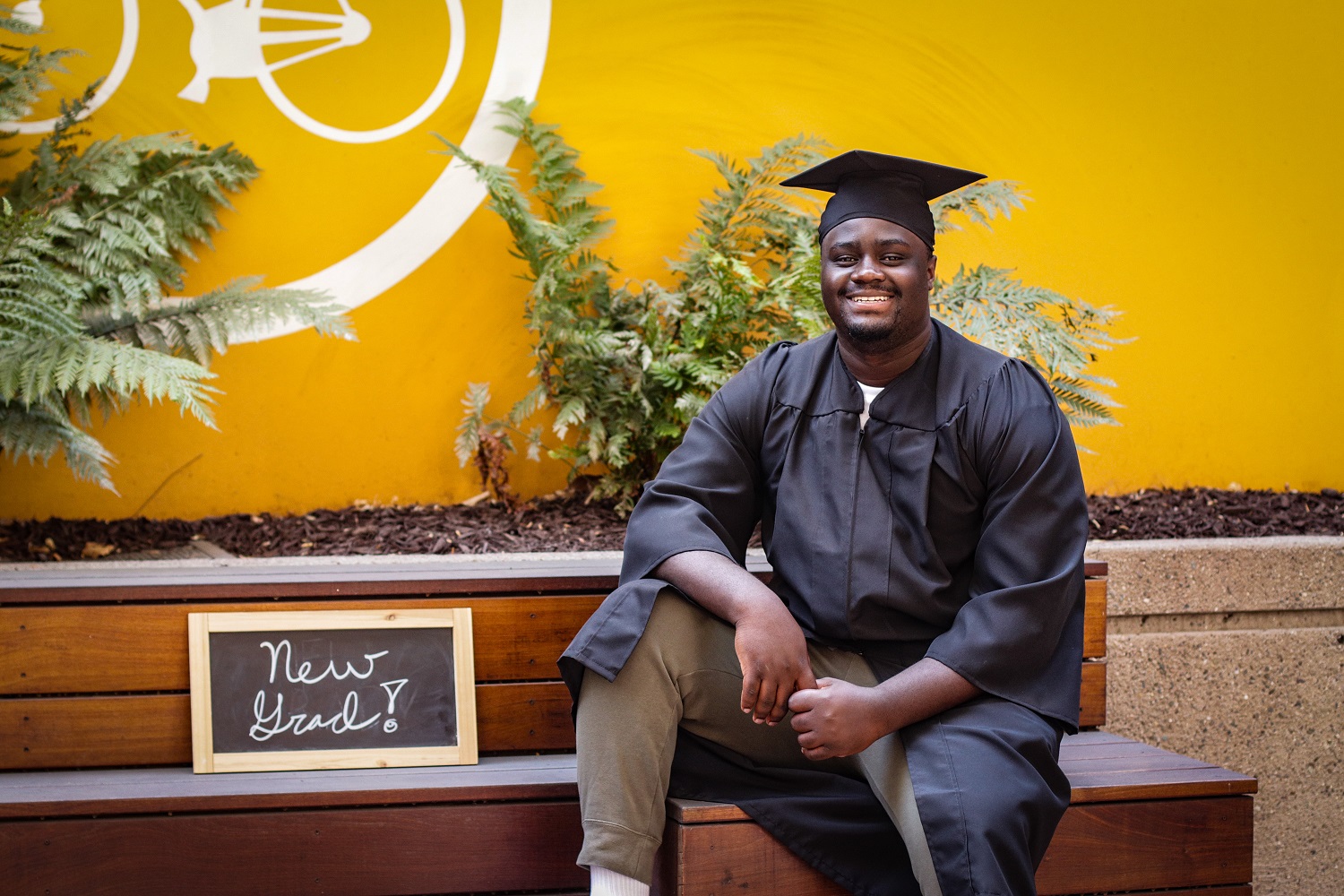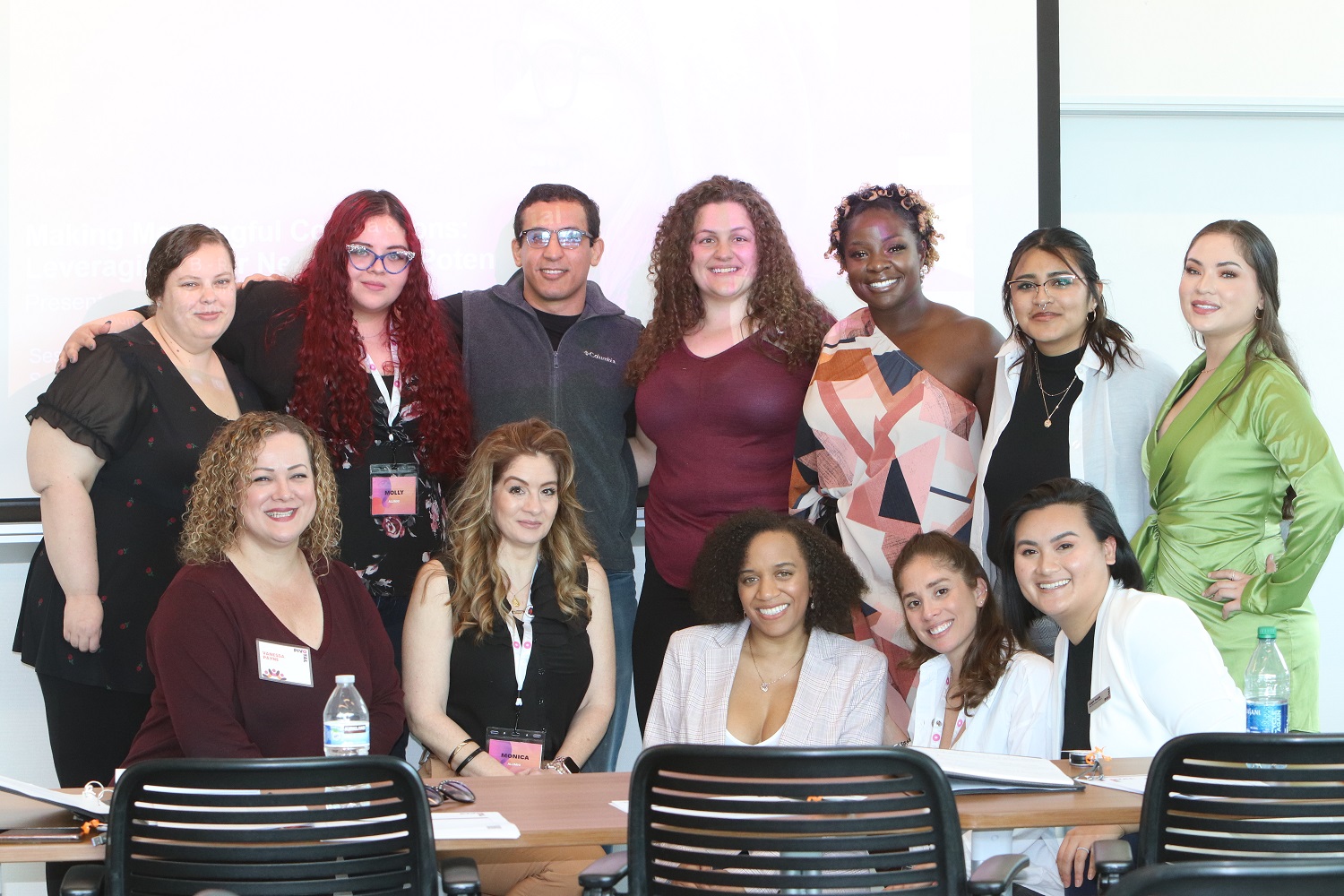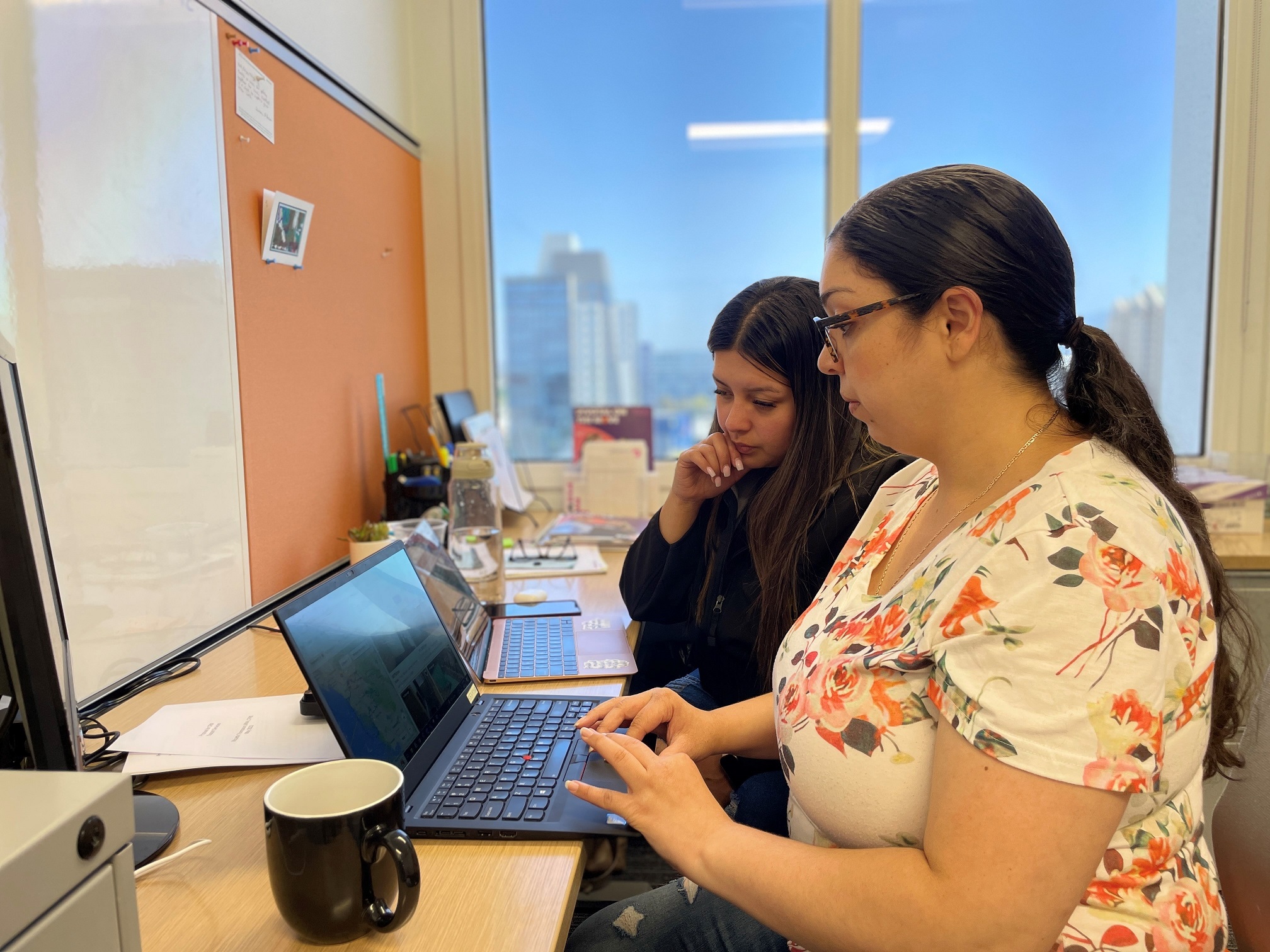
Pivotal Helps Foster Youth Build the Lives They Want for Themselves
Pivotal steps in with services for foster youth that are critical for helping them succeed in the classroom and in life. Foster youth too often fall through the cracks. They often lack the family support that most children have growing up. Without that support, what is there to motivate these young people and give them the hope that they can rise above their less-than-ideal circumstances?
The biggest issue for foster children, however, is aging out of the system. That’s when all the services drop off, and they are left on their own to carve out an independent life for themselves. Who is there to guide them? Who is there to spur them on to get a college education and ensure they can cover costs? If they’re lucky enough to live in Santa Clara and San Mateo Counties (and soon in Alameda County), Pivotal is there to help these children establish goals and make them happen.
We put some questions to Pivotal CEO Matt Bell, to find out more about the work of this, our latest small grant recipient:
Kars4Kids: Can you tell us something about the children you serve? What kind of backgrounds do they come from and how do they end up in your program?
Matt Bell: Pivotal serves young people in and from foster care, starting as early as the 8th grade, all the way through to college completion. These young people come from various backgrounds, but almost all of them have experienced trauma and upheaval that no child should have to endure. Roughly 88% of our students are young people of color and 80% of our post-secondary scholarship recipients are first-generation college students. Many of our students are referred to us by social workers at the Department of Family & Children’s Services, or from the foster youth liaisons at the local community colleges we work with. Pivotal provides individualized, trauma-responsive academic and employment coaching with the goal of helping these students get on the path to academic success and build the lives they want for themselves.

Kars4Kids: What are some of the challenges of young people in foster care?
Matt Bell: Due to the trauma these children experience – from being separated from their parents and/or siblings, being placed in foster homes, changing foster homes and schools as many as eight times, and aging out of the system with little or no family support — the education and employment outcomes for foster youth remain among the lowest in the country.
By age 19, only 58% of foster youth nationally complete a high school diploma or GED. It’s not that foster youth don’t care. In fact, 96% of foster youth report that they would like to earn a bachelor’s degree. But graduating high school and pursuing a college education can be an uphill battle – only about 10% earn a post-secondary degree.
Without consistent access to academic and career guidance, these young people can fall through the cracks. Pivotal changes that. While most support services offered to foster youth are terminated after the courts close a dependency case, our solution is to stick by our kids – even if their cases close or they move out of the area. There is no upper age limit for our services. Our long-term commitment is unique in this space.

Kars4Kids: What is “motivational interviewing” and how are your coaches using this approach with the kids?
Matt Bell: Motivational interviewing is a technique that is often used to help overcome reluctance and make behavioral changes. Coaches have youth assess themselves on their perceived fluency in four critical Success Skills that we have identified as being essential to long-term academic and employment success: Self-Awareness, Communication and Self-Advocacy Skills, Organization and Time Management Skills, and Accessing and Utilizing Resources. It is a collaborative process where the coach and the scholar work together to understand the young person’s vision and goals for themselves, come up with a plan to achieve those goals, and talk through any potential challenges or barriers.
Kars4Kids: How many coaches are working with you, and how many young people do they serve? What kind of training do you offer your coaches?
Matt Bell: We have nine high school and 11 post-secondary coaches, and we serve approximately 500 scholars annually – approximately 350 post-secondary and 150 high school scholars. Our coaches are supported by coach supervisors who provide training, guidance, best practices, and resources.
In addition, at the end of 2021, all our staff went through RISE (Recognize, Intervene, Support, Empower) training focused on supporting LGBTQ+ young people and in 2022, we went through Mental Health First Aid training to help us respond appropriately when a scholar is in a mental health crisis.

Kars4Kids: Pivotal has two coaching tracks, for high school, and for after high school. How are they different?
Matt Bell: Our high school coaches are really focused on helping students get their high school diploma and matriculate into a college program. Most of our high school students are still in the foster care system, so depending on their situation, they might be navigating a lot outside of their academics – working with their social workers, mandated therapeutic sessions, family reunification sessions, and so on. In addition, these students are often moving around – youth can change placements an average of 1.5 times per year before the age of 18 – so their schooling can be disrupted very easily. Pivotal high school coaches try to provide some stability, keep these kids focused on their goals, and help eliminate barriers and provide resources, so they can focus on academics. They also help them research colleges and universities, apply for scholarships and financial aid, and dig into what majors they are interested in.
Beyond high school, our scholars deal with a new set of challenges. Since many of these students are first-generation college students, they don’t always know what to expect from the first year in college. In addition, when they age out of care, they then face financial and housing issues. Our post-secondary coaches are focused on helping them succeed, keep their grades up, and investigate potential careers. They also help them find professional development opportunities and internships.
We do a warm hand off where the scholar meets with their high school coach and their new post-secondary coach to help maintain some consistency when a student is moving from our high school program into post-secondary.

Kars4Kids: What is the “Pivotal Path?”
Matt Bell: The Pivotal Path describes the way we perceive the student’s journey. We don’t tell our scholars what they should do. From day one, coaches ask them what they want for themselves and work with them to find a way to get there. After over 20 years of working with foster youth, we have learned that no student’s path is the same and trying to force a standardized structure on how a student should approach his academic career simply doesn’t work. We take an individualized approach and really try to understand what the student wants and what is going to work for them.
Kars4Kids: Tell us about your internship program.
Matt Bell: We partner with local companies to provide internship opportunities to our scholars. We provide guidance throughout the internship, both to the student and to the internship host. If a student is struggling or unsure how to manage a professional situation, they can always reach out to their coach or to their internship supervisor to get guidance.
We’re really proud of our internship program – many of our scholars end up getting full-time jobs from these internships. We are currently working to expand our internship program to work with even more corporate partners so we can provide an internship opportunity to any student who wants one in the field they are interested in.
Kars4Kids: How do you measure the impact of your programs?
Matt Bell: We have a dedicated Learning & Evaluation department at Pivotal, and its sole job is to track our progress and provide data-driven recommendations as to how to improve. At the highest level, we track graduation rates, both at high school and college, but we also track several program-specific metrics such as community college transfer rates, college retention rates, and scholar satisfaction with our program.
At the end of the day, our students’ success is the most important way that we measure success. We try to incorporate their voices into all our decision-making. We have alumni on staff and on our board as well as a Youth Advisory Board that we consult to get their input and feedback when making large program decisions.
Kars4Kids: Can you share a success story?
Matt Bell: My favorite recent story is about one of our post-secondary graduates, Elizabeth. Elizabeth went into foster care at 13 and experienced six housing changes in the five years she spent in the system. As soon as she aged out of the system, she faced housing issues and when she was 19, she became pregnant. Realizing she needed to find some stability for herself and her child, she decided to return to school. She had come to a Pivotal workshop some years back and remembering us, she reached out for a scholarship and joined our program. Our coaches helped her in many ways, as she became a mother, tried to find work-life balance, struggled with her mental health, and faced unexpected expenses and challenges during the pandemic.
With our help, she stayed on her path to a college degree and even though she had moved to Portland to go to university, we tried to keep her connected to our Pivotal family. She was interested in working to help other young people in the foster care system and wanted to learn more about working with nonprofits and grant writing. So, this past summer, we brought her on as a summer intern in our fundraising department. She helped with grant research and writing and did so well that we decided to bring her on part-time after she graduated, and her internship was over. She’s been a huge asset to our team and brings that youth voice and perspective to our work.
Kars4Kids: What’s next for Pivotal?
Matt Bell: This year, we are starting to serve middle-school students in 8th grade. We’re really excited about this because we know that if we can get to these students earlier, they are more likely to have an on-time graduation. Our goal is to move into serving 6th and 7th graders in the next few years.
We are also expanding the counties we work with. Historically, we have worked only with Santa Clara and San Mateo Counties, even though we work with students even if they move out of their county of care. This year, we have expanded some of our services into Alameda County and are looking at other counties that might make sense for us to expand into.
Finally, we have joined together with 7 other California agencies to form the Foster Youth Pre-College Collective (tFYPC). We are working together to share resources and data, understand how best to refer students to each other, and to advocate for legislation that will help all of California’s foster youth.